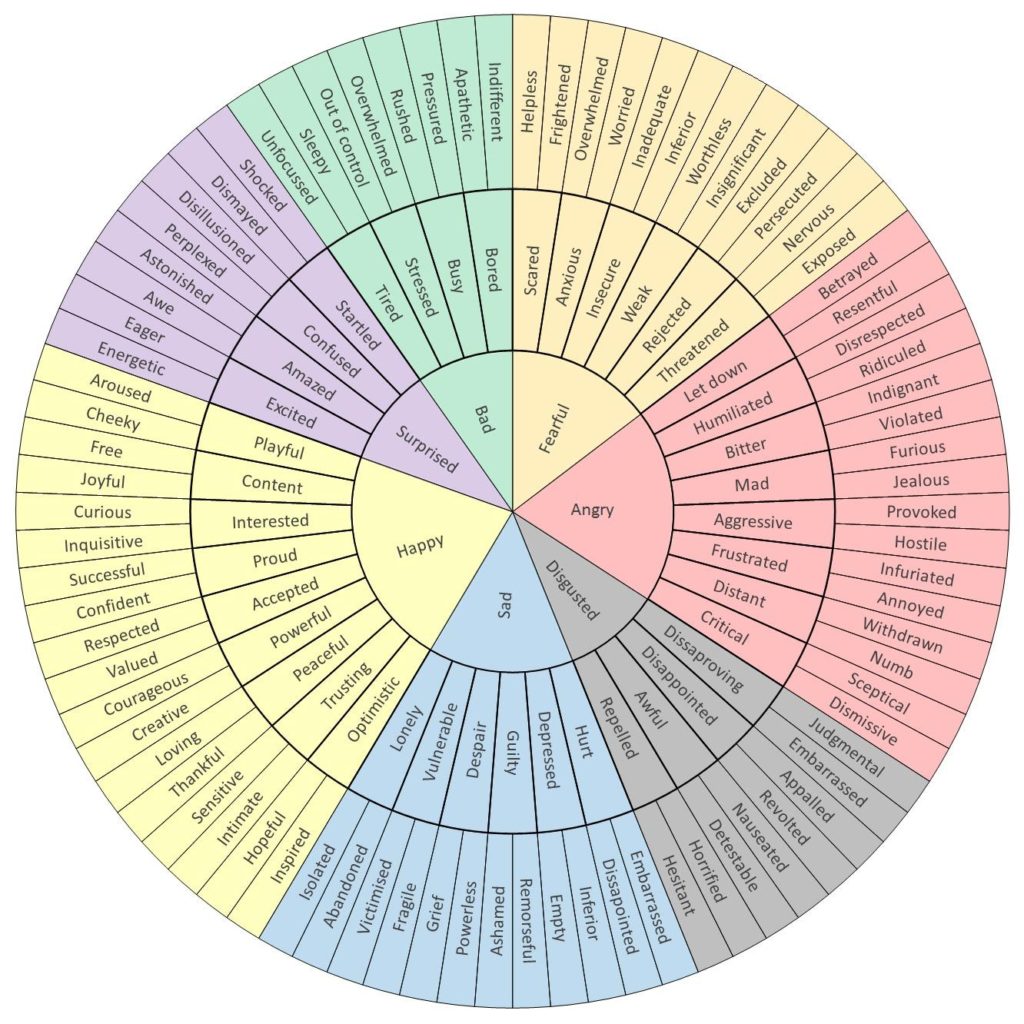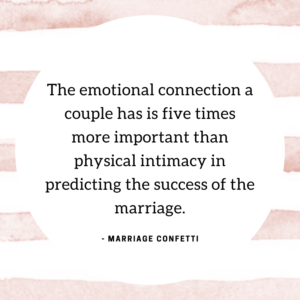
We all long for emotional connection. We need it. From our very first breaths to our very last, we crave spending time with others and feeling connected to them. Yet, somehow, it can sometimes feel like it’s one of the hardest things to do.
Our worlds are inundated with stories and images of deep love, perfect relationships, and fiery intimacy. Everyone else seems to have discovered the secret to those perfect relationships. So when we feel like we’re constantly guessing at how to play this complex game, it seems as though we’re the only ones.
I’ve been there. After years of medical school, residency, kids, crazy work hours, and other marital stressors my husband and I had let our marriage slip. Honestly, we thought we were happy, but in a moment of crisis it became clear that we weren’t emotionally connected and hadn’t been for a long time. At first, we didn’t really know how to start fixing things. It seemed daunting.
But here’s the truth. It’s really not so complex. Emotional connection is made of four ingredients: attunement, engagement, responsiveness, and safety.
Attunement
Emotional attunement is the process of reading another’s emotional cues. Being able to empathize with your spouse and trying to genuinely understand their point of view allows us to react appropriately. Dr. John Gottman teaches those who have mastered their relationships approach problems as team. (Lisitsa)
You can deepen your connection with yourself and your loved ones by trying these two things:
Ask Open-Ended Questions. Open-ended questions lead to open and flowing conversations. It opens the door for intimate connection. Instead of “Did you like dinner?” ask, “What was your favorite part of dinner?” Rather than asking “Are you mad?” ask, “You seem mad. What’s going on?”
Relax and take your time. If you’re having a difficult time labeling your emotions, take a moment to clear your mind, really feel, and find words to match those feelings. “When a word comes to mind and your body relaxes, you have hit the spot.” (Lisitsa)

Engagement
Emotional engagement is about turning towards your partner and actively participating in interactions and conversations. It means having deep discussions where everyone feels heard. Being able to talk to one another without feeling stressed, defensive, critical, or contempt for one another. It means engaging through smiling, laughing, and mirroring body language.
Marriage and family therapist Dr. Barton Goldsmith gave ten points for improving your communication.
- Share your true emotions and speak from your heart.
- Feel the fire, but don’t get burned. In other words, share your joy or fury with words, not volume.
- Ask for a response if they don’t answer your questions or acknowledge your feelings.
- Find a safe place where you can vent.
- Never assume you know how someone else feels.
- Make the dialogue meaningful.
- Accept that you may not feel great afterwards.
- Speak how you want to be spoken to.
- If you don’t get what you need, get help from a third party.
Responsiveness
Emotional responsiveness is about responding to your spouse sensitively, compassionately, and appropriately in way they need in that moment. When we are responsive, we don’t turn away from the other person, surf the internet, or check our text messages and Facebook updates. “We don’t fear their feelings or react to their state of mind by becoming defensive or closed down. We… [engage] with them authentically and sensitively in the moment.” (Tillhon)
Whether it be over something big or something small, giving your spouse your time and attention is crucial to building emotional connection. You can show responsiveness by making eye contact, smiling, and reaching out to touch. (Parker)
Safety
Emotional safety is one of the most important aspects of a satisfying connection in a loving relationship. (Porges) We cannot be truly vulnerable if we don’t feel safe, and as Brené Brown says, “Vulnerability is the birthplace of love, belonging, joy, courage, empathy, accountability, and authenticity.” Safety is built intentionally. Start by greeting one another with joy whenever you’ve been apart. This can be after an extended period, coming home from work, or even after being in separate rooms of the house. Soon you’ll find your demeanors soften and conversations easier. You’ll start looking forward to being together and fully opening up to one another.
“Our brain is constantly detecting through our senses whether we are in a situation that is safe, dangerous, or life threatening… The beauty of a nervous system that helps us survive life threatening events is that it also supports us in deepening our feelings of closeness and connection with one another.” (Boeder)
The Simplicity of Connection
It’s natural for our minds to overcomplicate connection. We should ourselves. We have ideas about how things should be, what we should say, and what should never be said. But connection isn’t found in fear and this is not impossible. Focus on attunement, engagement, responsiveness, and creating safety and you’ll be well on your way to building connection with your spouse.

Other Posts You May Like
How Well Do You Know Your Spouse
5 Skills You Need for Conflict Resolution
What Does A Healthy Marriage Look Like
Sources
Boeder, E. (2017, August 4). Emotional Safety is Necessary for Emotional Connection. Retrieved from https://www.gottman.com/blog/emotional-safety-is-necessary-for-emotional-connection/
Brown, B. (2017). Daring Greatly: How the Courage to Be Vulnerable Transforms the Way We Live, Love, Parent, and Lead. Penguin Random House Audio Publishing Group.
Lisitsa, E. (2014, January 16). Emotional Attunement. Retrieved from https://www.gottman.com/blog/self-care-emotional-attunement/
Parker, H. (2017, January 31). Let’s Get Responsive. Retrieved from https://www.psychologytoday.com/us/blog/your-future-self/201701/lets-get-responsive
Porges, S. W. (2017, April 19). The Neuroscience & Power of Safe Relationships – Stephen W. Porges – SC 116. Retrieved from https://relationshipschool.com/the-neuroscience-power-of-safe-relationships-stephen-w-porges-sc-116/
Tillhon, M. (2019, June 27). How to Emotionally Connect in 3 Simple Ways. Retrieved from https://psiloveyou.xyz/how-to-emotionally-connect-in-3-simple-ways-ef09f0016d79

[…] Makeup For BeginnersHow to Build Emotional Connection With Your SpouseWhy Understanding Is More Important Than […]